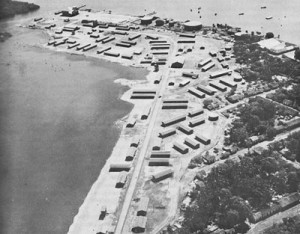Deborah A. Thomas, in Caribbean Studies, Archive Building, and the Problem of Violence, considers it “the agendas of Caribbean studies to create archives –or, more accurately, counterarchives – in order to make claims about the modern world and the significance of the region in the global processes that have shaped it over the past five centuries.” For her purpose the building of a counterarchive involves a process of black memory formation, particularly in the creation of things that were not directly felt – legacies of the transatlantic slavetrade – and that are in direct opposition to forms of “state memory” formation. That being, ways in which Caribbean history is constructed through a historical framework of the bourgeois colonial viewpoints.
Additionally, she argues that archive building should not be concerned solely in the creation of localized knowledge production for the sole purpose of reparationist activism, which operates the goal of high-lightening the relationships between “present inequalities and past injustices.” She argues “that when we move, in the creation of archives, to privilege a national analytic frame within the post-independence context of developmentalism, we often seem to lose the global geopolitical and structural historical macroperspective that undergirds reparations logic.” So, in essence archive building can be utilized as means of vindicating the Caribbean in the realm of global modernity.
In the process of archive building, “the emergent archive of violence” is viewed as being problematic. Many of the early efforts at archive building were done so with the explicit aim at mobilization towards projects of cultural, political and nationalistic ends.
Archives of violence bring into relief the limits of the anti- and immediately postcolonial focus on the nation-state as the primary locus of vindication and encourage us to return our vision more pointedly to the transnational geopolitical spheres that constituted the frame of reference for earlier internationalists and Pan-Africanists and that infuse the social and political worlds of contemporary Caribbean people.
On the contrary, I feel that there is not enough work done in the emergent archive of violence, particularly as it pertains cultural, political and nationalistic memory formation. I speak specifically to the roles that the Caribbean has played on the world scale through its in movement in multiple world wars and transactional conflicts. We can see the deep neglect for cataloging the role of the Caribbean in transnational conflict by viewing the National Archives page, Caribbean histories Revealed. There is barely a mention of the multiple deployments of Caribbean armed to aid western/allied forces in conflicts around the world. Archives such as Memorials Gates Trust, BBC History,Colonies, Colonials and World War Two, Caribbean Air Crew in RAF during WWII amongst other have failed to properly build an “emergent archive” of violence, in regards Caribbean participation in global conflicts. One archive the Navy Department Library has done an excellent job at cataloging the naval bases that were built in South America and the Caribbean Area, Including Bermuda during WWII. The building of more intentional “archives violence” around the Caribbean’s involvement in the multiple transnational conflicts illustrations the Caribbean’s deep engagement in modernity. Particularly, as a militarily strategic region, whether through the building and and housing of naval bases and military technologies or the recruitment and deployments of Caribbean’s to aid in non-regional conflicts.



“the Caribbean’s involvement in the multiple transnational conflicts”
Very astute point Dwight! I have to admit I have never actually previously analyzed the Caribbean involvement in world conflicts. When I think of how the Caribbean was founded upon violence (slavery), it is now clearer to me that an archive of violence could provide insight and possibly a solution.